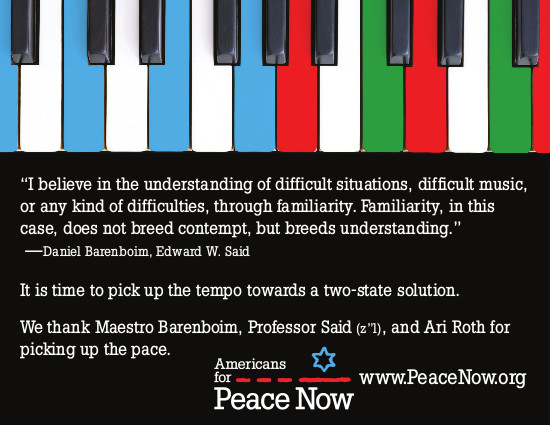
"I felt sick watching Trump at AIPAC. Not for what he said - his speech was entirely predictable - and not for
the fact that AIPAC gave him a platform. I felt sick because I was watching the natural culmination of decades in
which AIPAC has successfully defined the terms of the "acceptable" narrative about Israel in U.S. politics and
campaigns."
---------------------------------------------------------------------
Published March 22, 2016
Look on AIPAC’s Works, American Jews
For more than a decade I have been invited regularly to speak on Capitol Hill, on campuses, in synagogues, on
policy panels, to foreign diplomats and to the media. On these occasions I speak, as an advocate for Israel and
Israeli-Palestinian peace, about the issues on the ground in Israel-Palestine and their connection to U.S. foreign
policy. And on these occasions I talk openly and critically about AIPAC, just as for years my organization has
publicly challenged AIPAC’s legislative agenda at every turn.
I talk about AIPAC not because I hold any personal animus against the organization and its supporters, or because I
believe in some right-wing conspiracy. I know there are good people working at and supporting AIPAC. And I know
from experience - most recently with the successful Iran nuclear deal - that AIPAC is by no means omnipotent.
I also know, however, that for decades AIPAC has been actively promoting a Middle East agenda that is anathema to
the values of most American Jews, to the real interests of Israel, and to peace. And I know well, from personal
experience working in Washington and around the country, the enormous power AIPAC brings to bear on American Jews,
members of Congress, and the U.S. political system to see its agenda enacted. That is why I cannot talk about U.S.
policy and the Israeli-Palestinian conflict without talking about AIPAC.



 Rabbi Justin Goldstein was ordained in 2011 by the Ziegler School of Rabbinic Studies at
the American Jewish University in Los Angeles, is a 2012-2013 Rabbis Without Borders Fellow and has served
Congregation Beth Israel in Asheville NC since 2014.
Rabbi Justin Goldstein was ordained in 2011 by the Ziegler School of Rabbinic Studies at
the American Jewish University in Los Angeles, is a 2012-2013 Rabbis Without Borders Fellow and has served
Congregation Beth Israel in Asheville NC since 2014.


 Rabbi Esther L. Lederman is Director of Communities of Practice at the Union for Reform
Judaism. She previously served as the associate rabbi at Temple Micah in Washington, DC.
Rabbi Esther L. Lederman is Director of Communities of Practice at the Union for Reform
Judaism. She previously served as the associate rabbi at Temple Micah in Washington, DC.